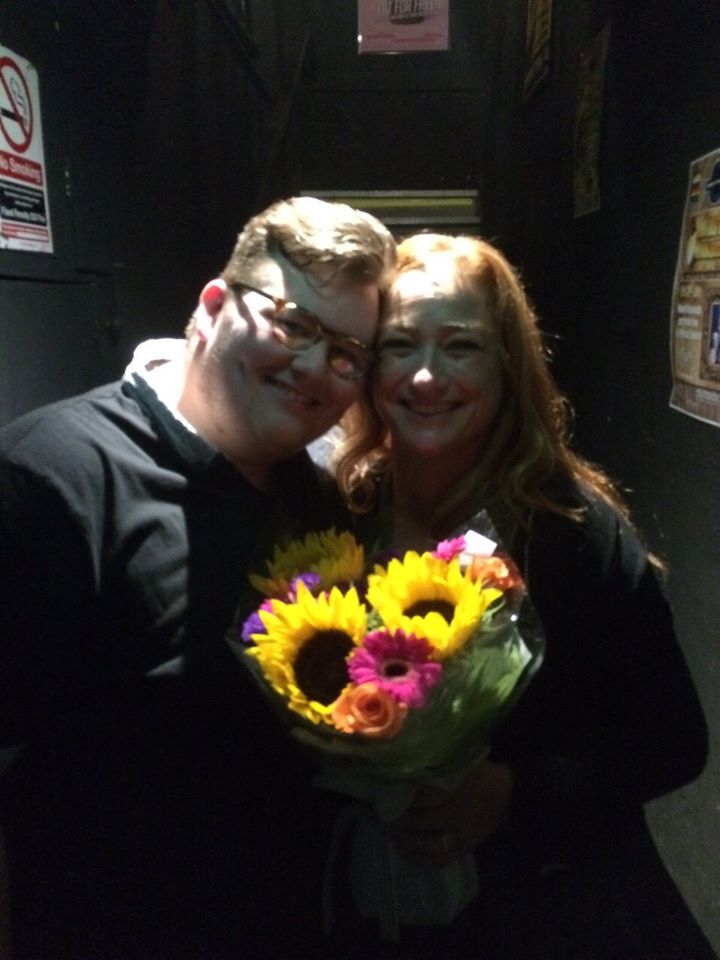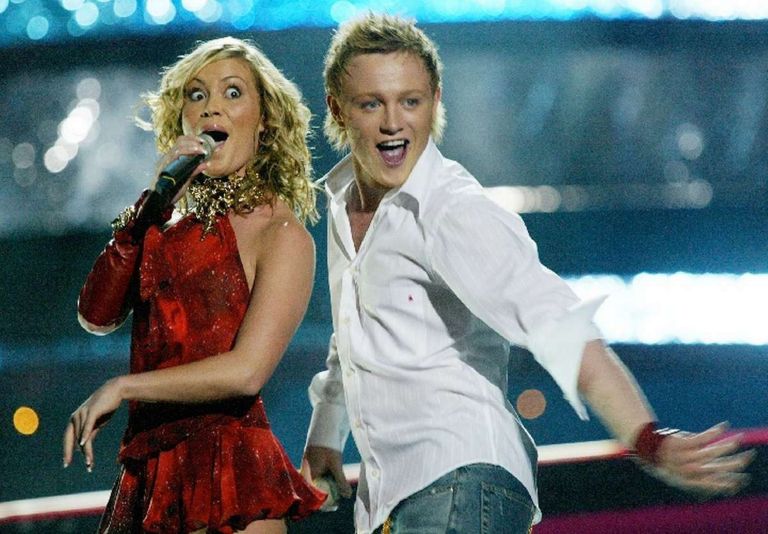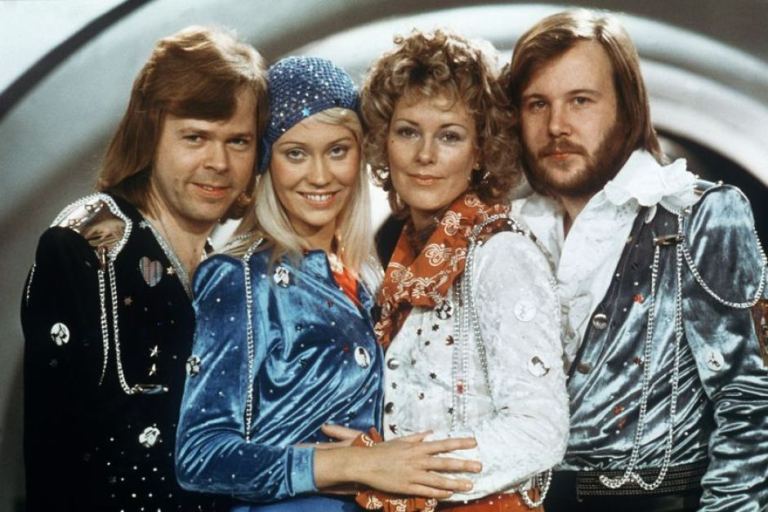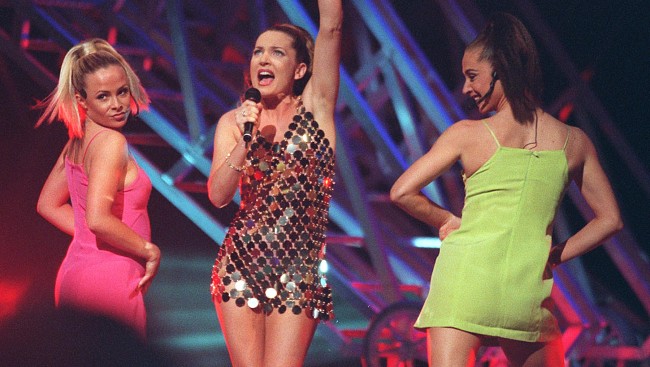What you didn’t know.
For any of you that are not Eurovision fans, or in the strongest case hate the contest, did you know it was created to bring the countries of war torn Europe together in the Mid 50’s, after a period of rest for the continent. Germany was still divided in two by a big wall and Ireland had not even been seen as a country in utter turmoil, when a young Swiss lady, Lys Assia, lifted the first “Grand Prix de la Chanson” trophy in Lugano Switzerland, during the spring of 1956.
When looking back at the first contest and the contests that we see today there is a big change. The contest started as a light entertainment/music show, produced in the Grand but still intimate theaters around the continent. Whereas presently the contest fills arenas around Europe with varying degrees of success.
Of course, even though I pride myself on knowing a lot about the contest, I don’t remember the first contest back in 1956, due to being only 23 years old myself. My first Eurovision memory comes in 1998, when my 6 year old self sat on the living room floor, watching Israeli flags waving in Birmingham’s National Indoor Arena, as one woman changed the Contest and European views with the wave of some feathers and a disco beat.
Dana International (pictured below), came to the contest as a relatively unknown artist outside of her native Israel, she was the first and to date, the only transgender person to perform on the Eurovision stage, winning on her first appearance. Whether it was her background or the song that won on the night, I will let you make your mind up. In my opinion it is a combination of both. It was a time of progression in the late 90’s for Western European countries, and this reflected the changing views and opinions of people at that time. This was reflected, 16 years later when Conchita Wurst (below), gave Austria its second ever win in the contest. The first ever Drag Queen to win the contest, showing a shift in views towards the LGBT community throughout Europe, the community being a big percentage of the contests fan base.
How I fell in love with Eurovision.
Since 1998, it was always a family tradition to draw up our score sheets and route for our favourite songs. It was always a great night in with nibbles. My dad that wouldn’t know a modern song if it hit him up the face became, THE MUSIC CRITIC. To give him some credit, he has predicted a few of the winners over the years, including his all time favourite song Fly On The Wings Of Love, Olsen Brothers Denmark 2000. A song more commonly know in the UK by the XTM & DJ Chucky Remix that reached the Top 10 in 2003.
It was a trip to Glasgow in the Autumn of 2004 that cemented my love of all things Eurovision. I was 12 and my grandparents took me away for the weekend. I was rummaging around in a book shop on Buchanan Street when I came across a Purple and Pink glittery book (how did people not know I was gay already…). The Eurovision Song Contest: The Official History by John Kennedy O’Connor. I didn’t put that book down for weeks, it was more the facts than the songs that first got me interested. I love statistics and there is no better analysis than at the back of this book, who knew running order and colour of a performers outfit determined the winning act.
My Favourite.
After a few years of watching and trying to predict the contests outcome from statistics, I realized, YOU CAN’T. I then started to look back at all these songs and people I had read about. That is where I stumbled across my favourite song and performance ever. I was in nappies and John Major was A resident at 10 Downing Street, when a red headed woman took to the Eurovision Stage in The Green Glens Arena, Millstreet. In Your Eyes was the song and Niamh Kavanagh the singer. Having made a name for herself on the OST for The Commitments film, she had been gigging around Ireland when she was offered this song for the 1993 RTE Eurosong. Having stormed the National Final, she went onto storm the Eurovision stage and the Irish Charts, registering the highest selling single of 1993. I had the pleasure of meeting Niamh during the summer of 2015 at a pride event in Belfast were she sang both her winning Eurovision song and her 2010 entry (It’s For You). A great voice that hasn’t changed in the 23 years since she won.

Politics? In Eurovision!!
The statement I hear most often when I say I am a Eurovision fan is, “but it’s all political”. Yes it can be, but there is a bigger reason why in the past 15 years the same countries seem to do very well. They send their biggest and best musical acts from each country. While countries such as France and UK, which, once dominated the contest, now don’t do as well. It is painfully obvious that since the UK and other pre-qualified countries such as France and Spain, became part of the so called Big 5 (biggest financial contribution) they have become complacent and send ‘rubbish’ acts. UK itself has ended up last on no less than three times, in the space of seven years . One of those last places being that of Jemini and their now, infamous Nul pointer song ‘Cry Baby’. It can be political, but honestly who will vote for a song that is so dated and sung way out of tune.

Modern Eurovision.
I hear you’s all going, pffft… please Eurovision isn’t modern, let me tell you how it is and is continuing to be. I bet the people that say that, either don’t watch Eurovision for the songs, or the last time they watched Eurovision was the Early 70’s. Since 1974 the Contest has become more and more in line with the European music scene. ABBA of course won in 1974 and Waterloo went on to become a world wide International hit, and their follow up singles became big hits throughout the rest of Europe and beyond. Their album ABBA Gold is one of the highest selling albums of all time worldwide, and their Euro-classic is placed comfortably on that compilation. Another 70’s group, favorably known as the ABBA of Britain, went on to win the contest 2 years after the Swedish Super-group. Brotherhood Of Man had a MASSIVE hit with their Euro-winner Save Your Kisses For Me, the highest selling Eurovision Song of All time, selling over 1 Million copies in the UK alone. They went on to release countless albums and singles and reached the top of the charts with their song Angelo a few years later.

Three years into the 80’s and every Eurovision winner since the turn of the decade was a number one hit in the UK. Johnny Logan “What’s Another Year”, Bucks Fizz “Making Your Mind Up” and Nicole “A Little Peace”, showing that not only was the contest popular but the contest produced credible chart worthy songs. This continued throughout the 80’s and 90’s. Gina G in 1996 produced probably the most commercial and credible song to come out of any contest in the previous 20 years. Ooh ah…. Just A Little Bit, was a worldwide hit, even being nominated for a Grammy Award in the U.S.A.

Moving into the present day many Eurovision songs have been influenced by what is climbing up the charts as we speak. Songs such as Love Injected (Latvia 2015) and Heart Shaped Hole (Denmark NF 2016) have been compared to songs released by international singing sensation Sia. While influential acts such as One Direction, David Guetta and Avicii have all given inspiration to European songwriters. The latter also writing the theme tune to the 2013 Eurovision song contest in Malmo, Sweden.
Talking of Sweden, why have they done so well in recent years?
The country of Meatballs and Moose are also the third largest country producing music per capita, in the world. With recent worldwide hits from the likes of Avicii, Robyn, Lykke Li etc, it really is of no surprise why Sweden do so well. Many of the Swedish songs in their National Final Melodifestivalen are written by those that produce and write world wide hits for established acts. So the writing style is similar and influences are apparent in the music produced for the domestic and international markets.
Hope you enjoyed my view as a Eurovision Fan, go forth and become a fellow Eurovision fan, there is worse you could be.





Love your take on Eurovision mate, can’t wait to see/hear what you top 70-1 is!:)
So far I’ve been impressed and apalled by the songs you’ve chosen…but that’s Eurovision!:)
LikeLiked by 1 person
Torbjorn Jonsson, that is exactly my thinking as well. Thank you for the feedback 😀
LikeLike